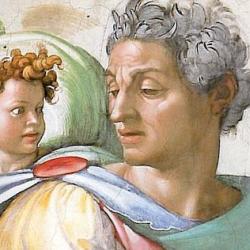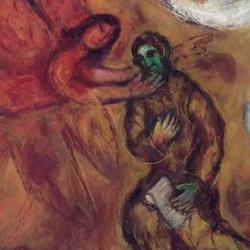INTRODUCTION
Isaiah’s series of burdens ends with a prophecy against the Phoenician city of Tyre. With its twin city Sidon, Tyre was one of the great trade cities of the ancient world. It will be destroyed, and all the cities that prospered from her trade will lament (vv. 1, 5, 14; cf. Revelation 18).
THE TEXT
“The burden against Tyre. Wail, you ships of Tarshish! For it is laid waste, so that there is no house, no harbor; from the land of Cyprus it is revealed to them. Be still, you inhabitants of the coastland, you merchants of Sidon, whom those who cross the sea have filled . . . .” (Isaiah 23:1-18).
TYRE’S HISTORY
At the end of Isaiah 23, the prophet condemns Tyre as a “harlot” city (vv. 16-18). Usually, that description is reserved for the people of Israel, first covenanted in marriage to God and then unfaithfully pursuing other gods (cf. Isaiah 1:21-23). Tyre is a harlot city because Tyre was once the main representative of Gentile “God-fearers.” During the time of Solomon, Hiram of Tyre devoted the riches of his city to the temple (1 Kings 5:1-12), a sign of the future pilgrimage of the nations to the house of God (Psalm 72:10-11; Isaiah 2:1-4; Isaiah 49:23; 60:10-16). Yet Tyre did not remain devoted to the God of Israel, and led Israel astray (cf. 1 Kings 11:1-8; 16:31-34). Her unfaithfulness was a cautionary tale to Israel (cf. Ezekiel 26-28).
PRINCELY MERCHANTS
Because of Tyre’s economic reach, her destruction reverberates across the Mediterranean. Tarshish is a Japhethite city, associated in the Bible with Greece (Genesis 10:4) and viewed as the extreme edge of Israel’s world (cf. Jonah 1:3). Cyprus is nearer, but serves as the link between the world of Israel and ancient Hellas. Isaiah calls both to mourn over Tyre (vv. 1, 5, 14). Egypt too has depended on Tyre to ship her goods to markets around the Mediterranean (v. 5). Tyre not only traded far and wide, but established Tyrean colonial outposts (v. 7), most famously in Carthage. Because of her trade, Tyre became a king-making city, and her merchants were as wealthy and powerful as princes (v. 8). The Bible acknowledges a royal heroism in trade: It takes as much courage, planning, foresight, organization, and cunning to stock a ship with goods for long-distance trade as it does to plan a military expedition. Trade kills fewer people than war.
PRIDE OF BEAUTY
Ultimately, Tyre is guilty of the same sin as Babylon – pride (v. 9). Yahweh stretches out His hand over the sea of nations and commands nations to demolish “Canaan” (v. 11; Tyre and Sidon were Canaanite cities, cf. Genesis 10:15). He will humble the “virgin daughter” who has exulted in her own works (v. 12). Tyre’s pride takes a different form than Babylon’s, but Yahweh deals with it just as severely. Tyre will be hidden for a 70-year period (v. 15). Though Isaiah directs the oracle against Tyre, Judah is also in his sites. If Judah becomes proud, she will endure a 70-year exile.
HARLOT CITY
Tyre’s harlotry is her unfaithfulness to Yahweh. Instead of devoting her energies, wealth, and power to building the temple, she enhances her own beauty. Her impressive trade becomes “harlot’s wages” (v. 17), homage to the idol Mammon. Yet Isaiah foresees a future restoration of Tyre. Someday, Tyre will revert to the supportive role she had in the time of Hiram, and her “harlot’s wages” will provide food and clothing for those who dwell before Yahweh’s face (v. 18). Tyre’s wealth will again be sanctified and devoted to the temple.










